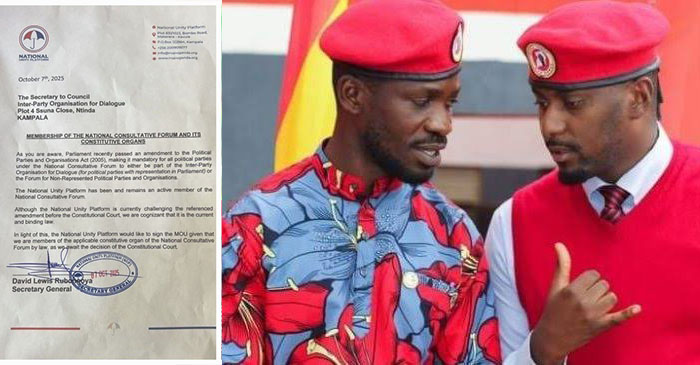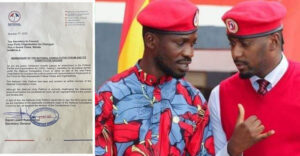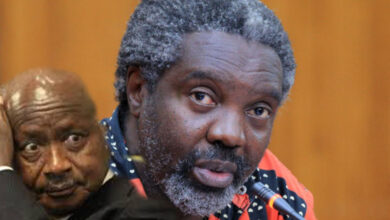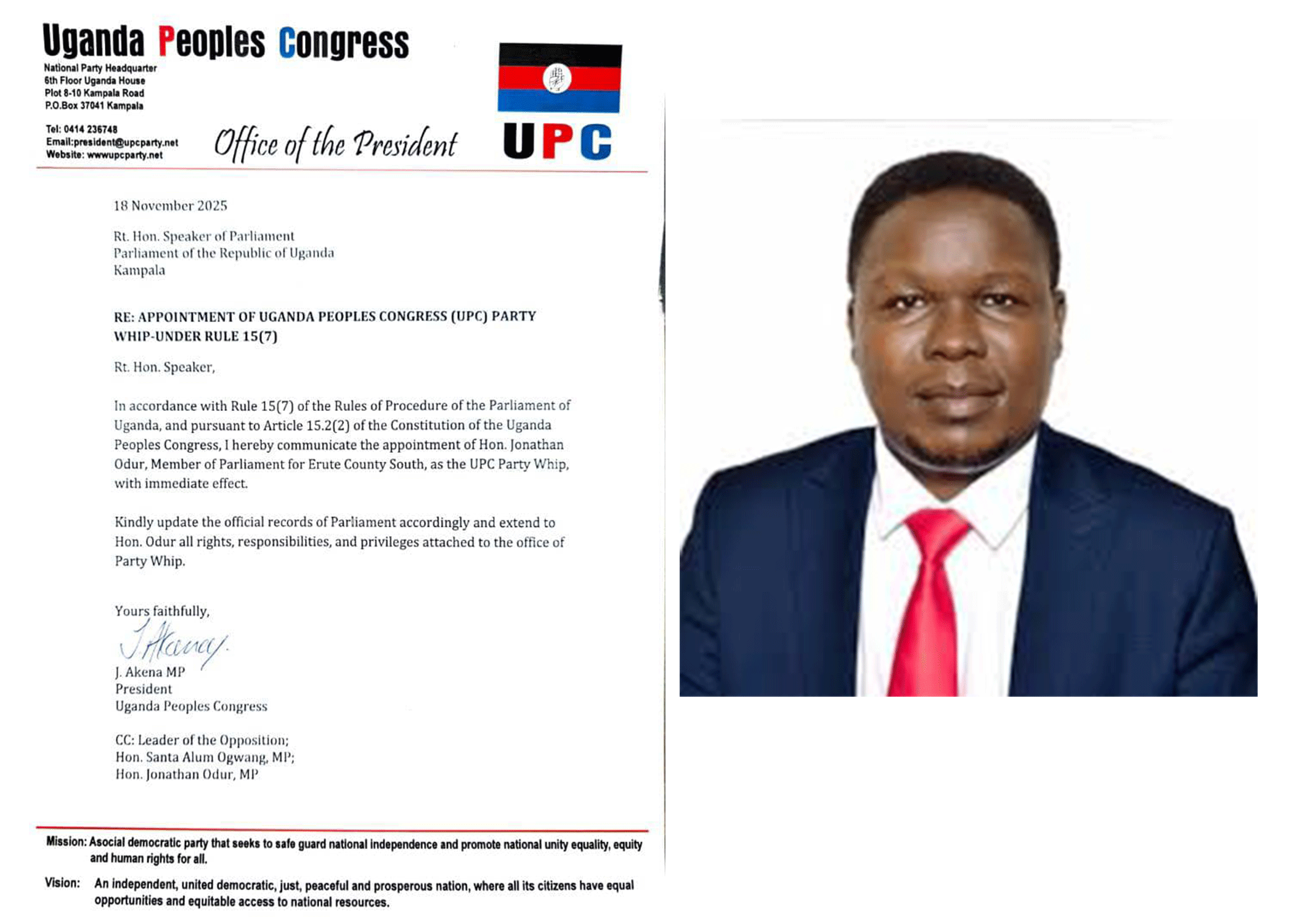NUP Draws “Red Line” on IPOD Inclusion, Demands Electoral Reforms and Political Prisoner Release
the National Unity Platform (NUP), Uganda's main opposition party, has been pushed to define its non-negotiable conditions for fully engaging with the government-dominated Inter-Party Organization for Dialogue (IPOD).

14/October/2025
by Y.Emma#lcctv news
KAMPALA – In a significant political development, the National Unity Platform (NUP), Uganda’s main opposition party, has been pushed to define its non-negotiable conditions for fully engaging with the government-dominated Inter-Party Organization for Dialogue (IPOD).
Following internal deliberations, the party has presented a list of demands it describes as its “red line,” setting the stage for a potential confrontation with the ruling National Resistance Movement (NRM) and testing the relevance of the IPOD platform.
According to senior NUP officials who spoke on the condition of anonymity, the party’s leadership has coalesced around three primary demands that must be met for their meaningful participation in IPOD:
The NUP is insisting on a time-bound, actionable plan to address what it calls the “structural imbalances” in Uganda’s electoral system. This includes reforms such as the restoration of presidential term limits, the installation of an independent and transparent electoral commission, and verifiable steps to ensure the security forces act impartially during elections.
The party is demanding the immediate and unconditional release of what it claims are hundreds of its supporters and members still detained in various facilities across the country. They argue that dialogue cannot be genuine while a significant portion of their political base is incarcerated, often on charges they deem politically motivated.
NUP has listed an end to the persistent harassment, arrests, and alleged torture of its supporters, party officials, and journalists sympathetic to their cause. They demand a public commitment from the state to respect political activities as guaranteed by the constitution.
IPOD, which brings together political parties with representation in Parliament, has long been criticized by the opposition as a “talk shop” that legitimizes the NRM government without yielding tangible democratic gains. The NUP, in particular, has had an on-again, off-again relationship with the platform.
The current push for a “red line” comes after internal pressure from the party’s grassroots, who have grown increasingly skeptical of IPOD’s utility. The party’s withdrawal from IPOD activities in the past was a direct response to this disillusionment.
Officials from the ruling NRM have historically downplayed such demands. In the past, the government has stated that electoral reforms are a matter for Parliament and that cases of individuals in detention are a judicial, not political, issue. They are likely to frame NUP’s demands as preconditions that undermine the spirit of dialogue.
The Democratic Party (DP) and Uganda People’s Congress (UPC), who are also IPOD members, have expressed similar frustrations in the past but have largely remained within the forum. NUP’s hardline stance could either galvanize a united opposition front or create fissures, with some parties opting for continued engagement regardless.
Political analysts warn that NUP’s move is a high-stakes gamble. “This is NUP’s way of forcing IPOD to prove its worth,” said Dr. Sarah Bireije, a political science lecturer at Makerere University. “If the NRM ignores these demands, IPOD risks being exposed as entirely ineffective. However, if NUP remains out, they also risk being sidelined from the only state-sanctioned multi-party platform.”
The ball is now in the court of the NRM government and the IPOD secretariat. NUP is expected to formally present these conditions at the next scheduled IPOD summit. The government’s response will be a critical indicator of its willingness to accommodate any opposition demands ahead of the next electoral cycle.
This development marks a crucial moment for Uganda’s political landscape, pitting the opposition’s strategy of conditional engagement against the ruling party’s control over the mechanisms of dialogue.
#lcctv news





